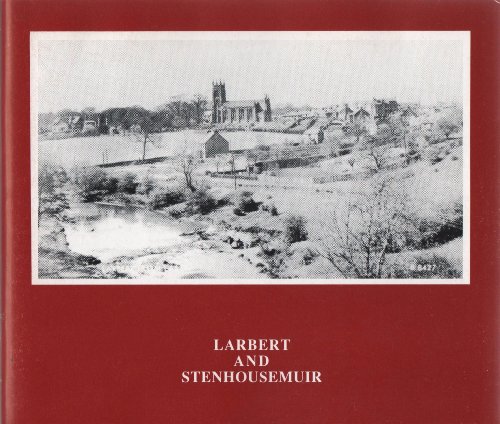Carron Iron Works
Location type
WorksName and dates
Carron Iron Works (1759-1963)Served by the Carron Company.
Description
This iron works was established in 1759. The works was able to produce iron from raw materials (notably using coke) and produce products such as cannons. Indeed the works was famous for its product the Carronade which was a form of cannon used until the 1850s. (At the entrance tower is a small display of cannon balls and cannons.)
The works diversified, making ovens, and ranges, and was modernised and rebuilt on a number of occasions, notably in the 1890s.
The blast furnaces closed in 1963 but manufacturing continued at the site, and despite bankruptcy in the 1980s, some manufacturing continues.
The Carron Company line ran here from Carron Company Basin to the south on the Forth and Clyde Canal and continued north to reach coal pits.
A disused viaduct (1860 'B' listed), which carried this line, crosses the River Carron just south of the works.
Tags
Iron Works River Carron02/07/2020
| Nearby stations Larbert Falkirk Camelon [1st] Camelon Falkirk Grahamston Camelon [1st] Falkirk High Thornbridge Halt Alloa Junction Grangemouth Airth Bonnybridge Bonnybridge Central Bonnybridge Canal Goods Polmont Kincardine | Carron Basin Arthur^s Oon Carron Ironworks? Carron Siding Carron Iron Works [Expansion] Carronhall Colliery Pit No 6 Falkirk Aluminium Works Bainsford Basin Castlelaurie Iron Works Lock 5 [FCC] Forganhall Galvanising Works Carronhall Colliery Pit No 5 Falkirk Iron Works Tourist/other Stenhouse Road Signal Box River Carron |
| Location names in dark blue are on the same original line. | |
Carron Iron WorksThe company's motto was 'Where iron runs like water'. |
Chronology Dates
| 26/12/1760 | Carron Iron Works Carron Iron Works opens. Managed by Dr John Roebuck. Shareholders in the Carron Company were; Dr John Roebuck, Thomas Roebuck, Ebenezer Roebuck, William Cadell (Senior) and William Cadell (Junior) of Cockenzie (who owned pits at Tranent), John Cadell and Samuel Garbett. The works may even have been in blast in January 1761. |
| / /1765 | James Watt Dr John Roebuck, who was the founder of the Carron Iron Works and lived at Kinneil House, formed a partnership (around 1765) with Watt and encouraged him to refine the design of his steam engine with separate condenser in a cottage, Watt's workshop, within the grounds of the house. Roebuck hoped to use engines to drain his mines at Bo'ness. |
| / /1766 | James Watt First successful engine made. (A portion of this Carron made engine remains at the Carron Iron Works.) |
| 13/11/1767 | Coalbrookdale First cast-iron rails made. Some of these may have been used on the Carron Iron Works waggonway to Kinnaird. |
| / /1768 | Elgin Waggonway Opened from Berrylaw to Limekilns Harbour with wooden rails by the 5th Earl of Elgin (or William Cadell, sources disagree). The line carried coal and iron ore for the Carron Iron Works. |
| / /1779 | Tranent Waggonway Taken over by John Cadell of the Carron Iron Works. |
| / /1819 | Falkirk Iron Works Set up by former Carron Iron Works employees. Many foundries followed shortly in the immediate area. Pig-iron from Middlesbrough was used and these works were a cheaper option than the existing practice of sending pig-iron to Glasgow by the canal for manufacturing and then return by the canal. |
| / /1840 | Nethercroy Colliery In operation above Auchinstarry on Croy Hill, later operated by the Carron Iron Works and they built a railway round the east side of the Croy hill to the Edinburgh and Glasgow Railway. |
| / /1904 | Shieldhill Colliery New coke ovens built at this Carron Iron Works owned pit. |
| 21/10/1905 | Falkirk and District Tramways Company Circular 6.5 mile tramway opened from Falkirk to Camelon to Larbert to Carron Iron Works to Falkirk. |
| / /1906 | Craigend Colliery Carron Iron Works takes over operation from United Collieries Ltd of this colliery near Standburn. Pits re-developed. |
| / /1907 | Gardrum Pit Opened by the Carron Iron Works. |
| / /1908 | Bainsford Branch (Caledonian Railway)
Bainsford Branch (North British Railway) By-pass line from Swing Bridge Junction to Fouldubs Junction partly opened. The western half was owned by the North British Railway (part of the former line to the Carron Iron Works) and the eastern was to be opened by the Caledonian Railway. |
| / /1913 | Carronhall Colliery Private line from Carron Iron Works north and to the east to Pit 5 and William Pit extended to Letham Colliery. |
| / /1936 | Bannockburn Colliery Carron Iron Works takes over from the Alloa Coal Company. |
| /12/1936 | Carnock Coke Ovens
Bannockburn Colliery
Pirnhall Mine Bought by the Carron Iron Works from the Alloa Coal Company. |







